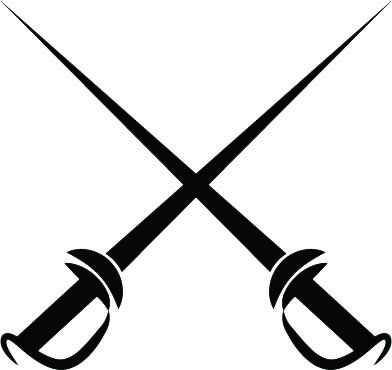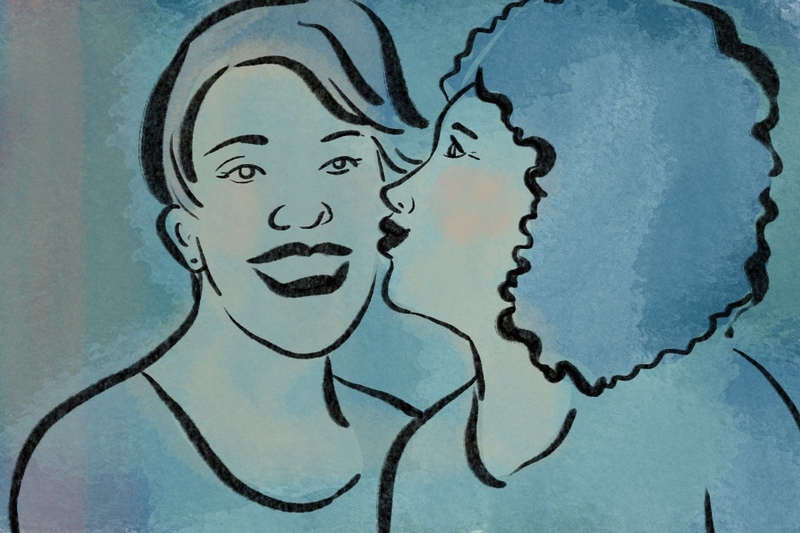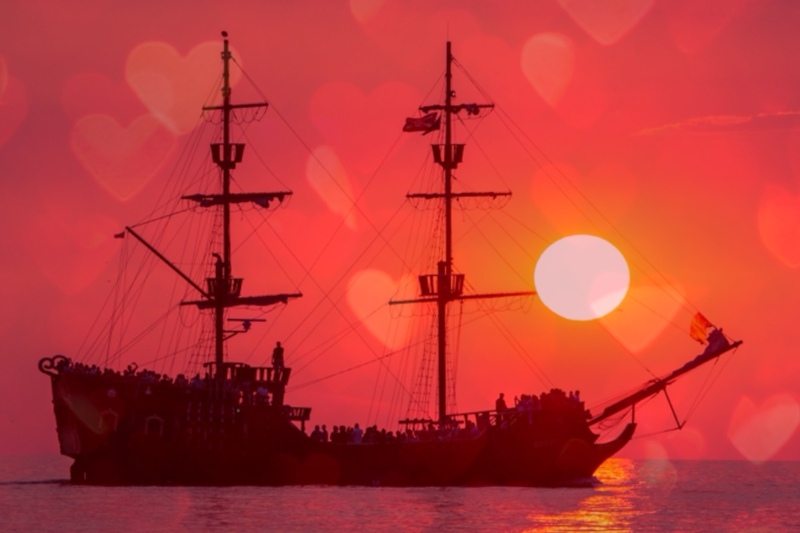AMERICAN WEDDINGS BLOG
Stay up to date with the latest wedding ceremony trends, script writing inspiration, tips and advice for first-time officiants, and news that matters to couples and wedding ministers.
Stay up to date with the latest wedding ceremony trends, script writing inspiration, tips and advice for first-time officiants, and news that matters to couples and wedding ministers.
Published Tuesday, Mar. 7th, 2023
Last updated Friday, Mar. 24th, 2023

Listen now:
It should come as no surprise that a few colonial-era pirates were probably gay. All jokes aside about seamen and long months at sea, queer culture and same-sex relationships have been around for as long as humans have paired up and fallen in love.
But what might come as a surprise is that many of these pirates were bound to each other in very public and widely accepted civil unions – called matelotages.
Just like modern marriages and domestic partnerships, matelotage joined two men in affectionate, financial, and sometimes sexual partnerships. Once united in matelotage, the mens’ fortunes and futures were linked to the other, ensuring that if one pirate died, his partner would inherit his wealth and property. These pirates shared their incomes, fought alongside each other, and provided companionship and comfort in times of triumph or hardship.
Related: Pirate Themed Wedding Ceremony Script with Reading and Rum Toast

Some historians claim that these relationships were strictly financial and never sexual, noting that many pirates who were joined in matelotage were also married to women. (Clearly bi/ pan erasure and polyamorous erasure have existed for centuries...)
But other historians are adamant that these relationships represented more than a buccaneer’s last will and testament… Just like modern marriages, they claim, civil unions among pirates in the 1700s and 1800s were probably a mix of material responsibility, friendship, and love.
This seems much more likely, right?
Historians who embrace the queer potential of matelotage cite letters between pirates and articles written by ship captains as evidence of complex and nuanced bonds – financial agreements and insurance policies; platonically loving oaths, like those forged between brothers; and also sexual and romantic arrangements between lovers.
Related: Platonic Marriage: Why Friends Say ‘I Do’ & How to Officiate These Unconventional Ceremonies
Of course, much like today, some countries were less accepting of same-sex relationships than others, and even made these partnerships illegal. These anti-gay attitudes extended to their pirate crews, which means that very few ship records from the time would dare to mention same-sex romances at all, even if they were happening in the open.
French pirates are thought to have been more tolerant of same-sex relationships, especially on the island colony of Tortuga, sometimes called ‘Gay Pirate Island.’ But most English captains had strict codes against open homosexuality. English captain Bartholomew Roberts, for example, wrote that if any “boy or woman” was found having relations with a member of the crew, that man would be put to death. (via Nicole Keegan, Men and Matelotage: Sexuality and Same-Sex Relationships within Homosocial Structures in the Golden Age of Piracy, 1640-1720)
Still, these pirates were encouraged and supported when entering the bond of matelotage, and these unions were proudly honored by captain and crew.
Today, scholars have yet to agree over whether these civil unions were frequently romantic or not, and historians may never sort it out. But there’s no denying that same-sex romantic relationships have always existed, and that these couples have always deserved the right to marry if they want to – and to have equal access to the affection, security, and respect that marriage carries with it in society.
So, was matelotage just a pirate’s gay marriage in disguise?
We can’t say for sure, but we hope so.
Related: Read AMM’s views on marriage and The Articles of Our Faith
Did you know? ‘Matelotage’ is the french word for ‘seamanship,’ and ‘matelot’ means ‘sailor.’ Most people believe that this is the origin of the infamous pirate greeting – Ahoy, matey!

Read next:
Read about the reasons why best friends get married, whether platonic marriage is legal in the U.S., and how to officiate these unconventional non traditional ceremonies.

Illustration by Jessica Levey

We added a unique pirate wedding script to the library, filled with nautical imagery and seafaring slang, plus a special reading of Ben Harper's 'Gold to Me', a traditional hand blessing ceremony, and a rum unity toast. Read the full article here.
Become a Wedding Officiant with Our Free Online Ordination!